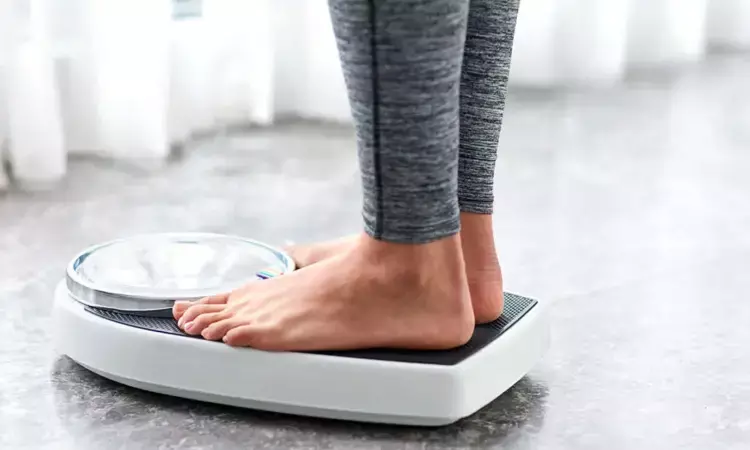- Home
- Medical news & Guidelines
- Anesthesiology
- Cardiology and CTVS
- Critical Care
- Dentistry
- Dermatology
- Diabetes and Endocrinology
- ENT
- Gastroenterology
- Medicine
- Nephrology
- Neurology
- Obstretics-Gynaecology
- Oncology
- Ophthalmology
- Orthopaedics
- Pediatrics-Neonatology
- Psychiatry
- Pulmonology
- Radiology
- Surgery
- Urology
- Laboratory Medicine
- Diet
- Nursing
- Paramedical
- Physiotherapy
- Health news
- Fact Check
- Bone Health Fact Check
- Brain Health Fact Check
- Cancer Related Fact Check
- Child Care Fact Check
- Dental and oral health fact check
- Diabetes and metabolic health fact check
- Diet and Nutrition Fact Check
- Eye and ENT Care Fact Check
- Fitness fact check
- Gut health fact check
- Heart health fact check
- Kidney health fact check
- Medical education fact check
- Men's health fact check
- Respiratory fact check
- Skin and hair care fact check
- Vaccine and Immunization fact check
- Women's health fact check
- AYUSH
- State News
- Andaman and Nicobar Islands
- Andhra Pradesh
- Arunachal Pradesh
- Assam
- Bihar
- Chandigarh
- Chattisgarh
- Dadra and Nagar Haveli
- Daman and Diu
- Delhi
- Goa
- Gujarat
- Haryana
- Himachal Pradesh
- Jammu & Kashmir
- Jharkhand
- Karnataka
- Kerala
- Ladakh
- Lakshadweep
- Madhya Pradesh
- Maharashtra
- Manipur
- Meghalaya
- Mizoram
- Nagaland
- Odisha
- Puducherry
- Punjab
- Rajasthan
- Sikkim
- Tamil Nadu
- Telangana
- Tripura
- Uttar Pradesh
- Uttrakhand
- West Bengal
- Medical Education
- Industry
Is weight loss good or not? Study links stable weight with exceptional longevity in older women

USA: Researchers from the University of California San Diego (UCSD) in a study on longevity in women examined the benefits of keeping a stable weight for older women.
The scientists in their study, published in The Journals of Gerontology: Series A, studied thousands of women to determine the likelihood of reaching the ages of 90, 95, or 100, which they labelled as “exceptional longevity.” The data analysis revealed that older women who maintained a stable weight maybe 1.2 to 2 times more likely to reach ages 90 to 100.
"While maintaining a stable weight was shown to be beneficial towards reaching exceptional longevity, unintentional weight loss was linked with a reduction in the likelihood of reaching 90," the researchers wrote.
The study was conducted by Aladdin H. Shadyab, University of California, San Diego, La Jolla, California, USA, and colleagues to examine the associations of short-term (3-year) and long-term (10-year) weight changes with survival to ages 90, 95, and 100 among older women. They also examined whether intentional and unintentional weight loss differed in their associations with survival at these ages.
For this purpose, they used longitudinal data from the Women’s Health Initiative comprising 54 437 women aged 61–81 years. Weight measurement was done at baseline year 3, and year 10. The participants were classified as having stable weight (<5% change from baseline), weight gain (≥5% increase from baseline), and weight loss (≥5% decrease from baseline).
The researchers reported the following findings:
- 56.3% of women survived to ≥90 years.
- After adjustment for relevant covariates, 3-year weight loss of ≥5% versus stable weight was associated with lower odds of survival to ages 90 (OR, 0.67), 95 (OR, 0.65), and 100 (OR, 0.62).
- Compared to intentional weight loss, unintentional weight loss was more strongly associated with lower odds of survival to age 90 (OR, 0.83 and OR, 0.49, respectively).
- Three-year weight gain of ≥5% versus stable weight was not associated with survival to age 90, 95, or 100.
- The pattern of results was similar among normal weight, overweight, and obese women in body mass index (BMI)--stratified analyses.
The study revealed that weight loss of more than 5% but not weight gain was linked with lower odds of longevity, more strongly among women with unintentional weight loss.
"These findings, in the context of the totality of the evidence, suggest that blanket recommendations for weight loss in older women are unlikely to lead to better survival to advanced ages," the investigators wrote. "These data do not affect clinical recommendations for moderate weight loss when required to obtain positive health outcomes, specifically for obese and severely obese persons.
However they add that, "these data support close monitoring of the amount and speed of weight loss, particularly when unintentional, as an indicator of underlying poor health and predictor of reduced lifespan in older women."
"Importantly, this study supports the promotion of weight stability as a useful predictor of longevity in older women," they concluded.
Reference:
Shadyab, A. H., Manson, J. E., Allison, M. A., Laddu, D., Van Horn, L., Wild, R. A., Banack, H. R., Tabung, F. K., Haring, B., Sun, Y., LeBlanc, E. S., LeBoff, M. S., Naughton, M. J., Luo, J., Schnatz, P. F., Natale, G., Ostfeld, R. J., & LaCroix, A. Z. Association of Later-Life Weight Changes With Survival to Ages 90, 95, and 100: The Women’s Health Initiative. The Journals of Gerontology: Series A. https://doi.org/10.1093/gerona/glad177
Dr Kamal Kant Kohli-MBBS, DTCD- a chest specialist with more than 30 years of practice and a flair for writing clinical articles, Dr Kamal Kant Kohli joined Medical Dialogues as a Chief Editor of Medical News. Besides writing articles, as an editor, he proofreads and verifies all the medical content published on Medical Dialogues including those coming from journals, studies,medical conferences,guidelines etc. Email: drkohli@medicaldialogues.in. Contact no. 011-43720751


